I am an ecological economist specialising in biodiversity finance, nature-positive organisations, infrastructure sustainability, sustainable finance, biodiversity offsetting and ecological economics. My academic research features regularly in popular media including the Guardian, BBC Countryfile, the Times, Sky News, the Financial Times and the ENDS report. I currently hold three ongoing expert advisory roles for the UK government: on Natural England’s Biodiversity Net Gain Monitoring and Evaluation expert advisory group; the UK Treasury’s Biodiversity Economics working group; and I am an expert advisor to the International Advisory Panel on Biodiversity Credits. I was an expert contributor to the 2022 UK Environmental Audit Committee report on Biodiversity and Ecosystems, the Parliamentary Office for Science and Technology POSTBrief on ‘Biodiversity Net Gain’, and POSTnotes on biodiversity offsetting and just sustainability transitions. I also work as a freelance consultant, including hosting seminars and advising multilateral development institutions and companies on biodiversity net gain, biodiversity offset policy, nature-positive strategy and biodiversity safeguards. I lecture on Masters programmes at the University of Oxford, Surrey, and Imperial as well as Oxford University executive education and school access programmes, and co-supervise 5 PhD and Masters researchers. I’m co-host of the European Society for Ecological Economics podcast “Economics for Rebels”. I was named as one of the 100 most influential environmental professionals in the UK by newspaper the ENDS Report in 2022, and won the UKRI Natural Environment Research Council’s early career policy impact award in 2023.
My Postdoc is funded by EU Horizon 2020 project “SUPERB”, focusing on understanding and evaluating the mechanisms for financing the restoration of ecosystems across Europe. I also assist the biodiversity and scenario modelling work packages for the Agile Sprint project: Operationalising Treasury Green Book Guidance on biodiversity.
Related News Articles
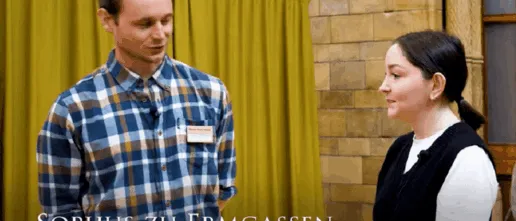
Sophus zu Ermgassen features in new Natural History Museum exhibition.
Leverhulme Centre for Nature Recovery researcher, Sophus zu Ermgassen appears in a wonderful new, free and permanent exhibition in London’s Museum of Natural History. You never need an excuse to visit this magnificent museum, and this exhibit should definitely be on your list of things to see when you next visit. Packed with contemporary science […]

Leading from the front. The Role of the Public Sector in Delivering Nature Recovery
This week we are talking to Andy Allen, the Lead Policy Advocate on Land Use at The Woodland Trust. The Woodland Trust has today launched a new report entitled: Leading from the front. The Role of the Public Sector in Delivering Nature Recovery, which was compiled by Sophus O.S.E. zu Ermgassen, Katie Kedward, Robert J. […]
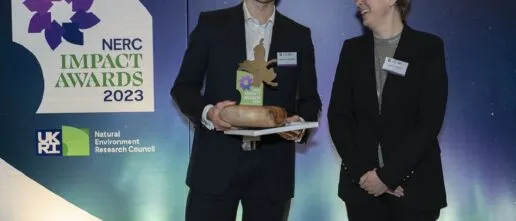
Dr Sophus zu Ermgassen wins NERC Impact Award : Early Career Impact
“Shaping the design and implementation of England’s new biodiversity net gain policy” Researchers whose work has had a significant, wide-reaching impact on the economy, society or environment were celebrated at NERC’s 2023 Impact Awards this week. CONGRATULATIONS to Dr zu Ermgassen, who works in the Dept of Biology, and also on Leverhulme Centre for Nature […]

Our response to Defra’s consultation on improving the implementation of Biodiversity Net Gain for minor, medium and brownfield development
We raise concerns about the effect that the proposed changes will have on the demand for units on the off-site BNG market, based on research into the outcomes of the off-site market, & highlight the potential for worsening ecological outcomes from the changes proposed to the Small Sites Metric.
Related Research Themes

Finance
Scaling finance and investment for rapid nature recovery at a global scale.

Systems
Developing a novel Analysis and Decision Platform to integrate nature recovery into land-use and infrastructure planning, and exploring scenarios that can deliver local, national and international commitments to nature, climate change and sustainable development.

Policy engagement for nature recovery
We work with policy-makers to foster effective approaches to nature recovery, using the Centre's unique evidence-base and compelling stories about nature and its value to society.
Related Projects
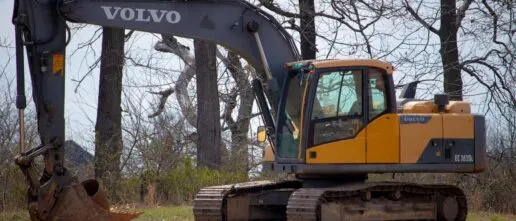
Coordinating Research Around Biodiversity Net Gain
At its heart, BNG frames a challenging question: in a world where new housing, workplaces and other land use needs are deemed essential; is it possible to provide this infrastructure without Nature bearing the brunt of the costs?
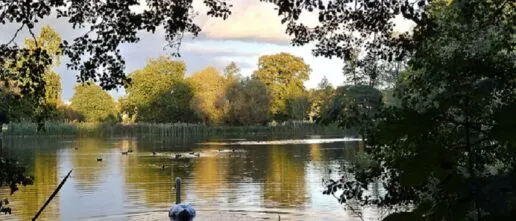
Pioneering Nature-Positive Pathways: Organisational Approaches for delivering Nature Recovery
Understanding the methods and actions required by large organisations to deliver effective and equitable biodiversity outcomes in line with achieving global nature recovery goals.

Rethinking the role of state institutions in nature recovery
In England there has been a long-term trend towards the retrenchment of direct state spending and the role of government in nature conservation policy – what could an alternative vision for the state look like?

Financing local nature recovery in Oxfordshire
Understanding the scale of the opportunity to fund nature recovery with offsite Biodiversity Net Gain (BNG) payments.
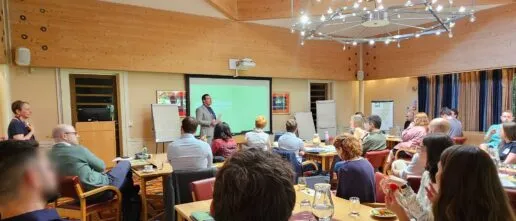
Blended finance for nature recovery
Rethinking investment in England’s natural environment

Designing effective Nature Restoration Funds in theory and practice
Collating the evidence from theory and nature restoration funds around the world to inform the next generation of conservation compensation funds
Related Outputs
Mission-Oriented Public Policy for Nature Recovery
This paper outlines the findings of an expert workshop exploring how policies for delivering nature recovery relate to the policy toolkit applied in mission-oriented strategy, and demonstrate how missions-thinking can be applied to nature recovery in England.
Mission-Oriented Public Policy for Nature Recovery
We conduct an expert workshop to identify policies for delivering nature recovery in England and perceptions of their feasibility, showing an inverse correlation between experts’ perceptions of policies’ impact at delivering nature recovery, and their feasibility. We then explore how these policies relate to the policy toolkit applied in mission-oriented strategy and demonstrate how missions-thinking […]
Leading from the front. The Role of the Public Sector in Delivering Nature Recovery
This report sets out an expert opinion on how Government should approach the issues of funding and financing nature recovery in England. The research takes as its starting point the essential importance of nature recovery and the headwinds so far experienced in achieving it. Taking account of the growing expectation that new nature markets will […]
The Nature Positive Journey for Business: A research agenda to enable private sector contributions to the global biodiversity framework.
As a group of researchers and consultants working at the interface between business and biodiversity, we propose a conceptual model through which private sector contributions to a Nature Positive future could be realised and use it to identify priority research questions.
The “nature-positive” journey for business: A conceptual research agenda to guide contributions to societal biodiversity goals
Biodiversity is rising rapidly on the global agenda, prompting businesses to adopt the “nature-positive” framing, expressing a commitment to combat biodiversity loss and contribute to global nature recovery goals. However, realizing these ambitions requires transformative changes in business operations, which will be challenging given the uncertainties surrounding possible strategies and pathways. A research-driven approach for […]
Navigating uncertainty in LCA-based approaches to biodiversity footprinting
The use of Life cycle assessment (LCA) methods is rapidly expanding as a means of estimating the biodiversity impacts of organisations across complex value chains. However, these methods have limitations and substantial uncertainties, which are rarely communicated in the results of LCAs. Drawing upon the ecological and LCA literature on uncertainty and two worked examples […]
The UK nature finance ecosystem: status and opportunities for scale
This report reviews the current state of nature finance in the UK, the ecosystem of actors involved and the enabling environment to scale finance, including the role of blended finance. The report acts as a primer to inform future research toward policy recommendations.
If you believe…An alternative vision for role of the state with Dr. Sophus Zu Ermgassen
What role does the state have to play in nature recovery? If we are serious about halting the decline in biodiversity do we need to lay out a more ambitious agenda that can unify the currently fragmented aspects of private nature finance, state intervention and the role of public sector institutions. This is part of […]
Response to the consultation from the Department for Energy Security and Net Zero on the implementation of the UK government’s principles for voluntary carbon and nature market integrity
Comments from the Leverhulme Centre for Nature Recovery







